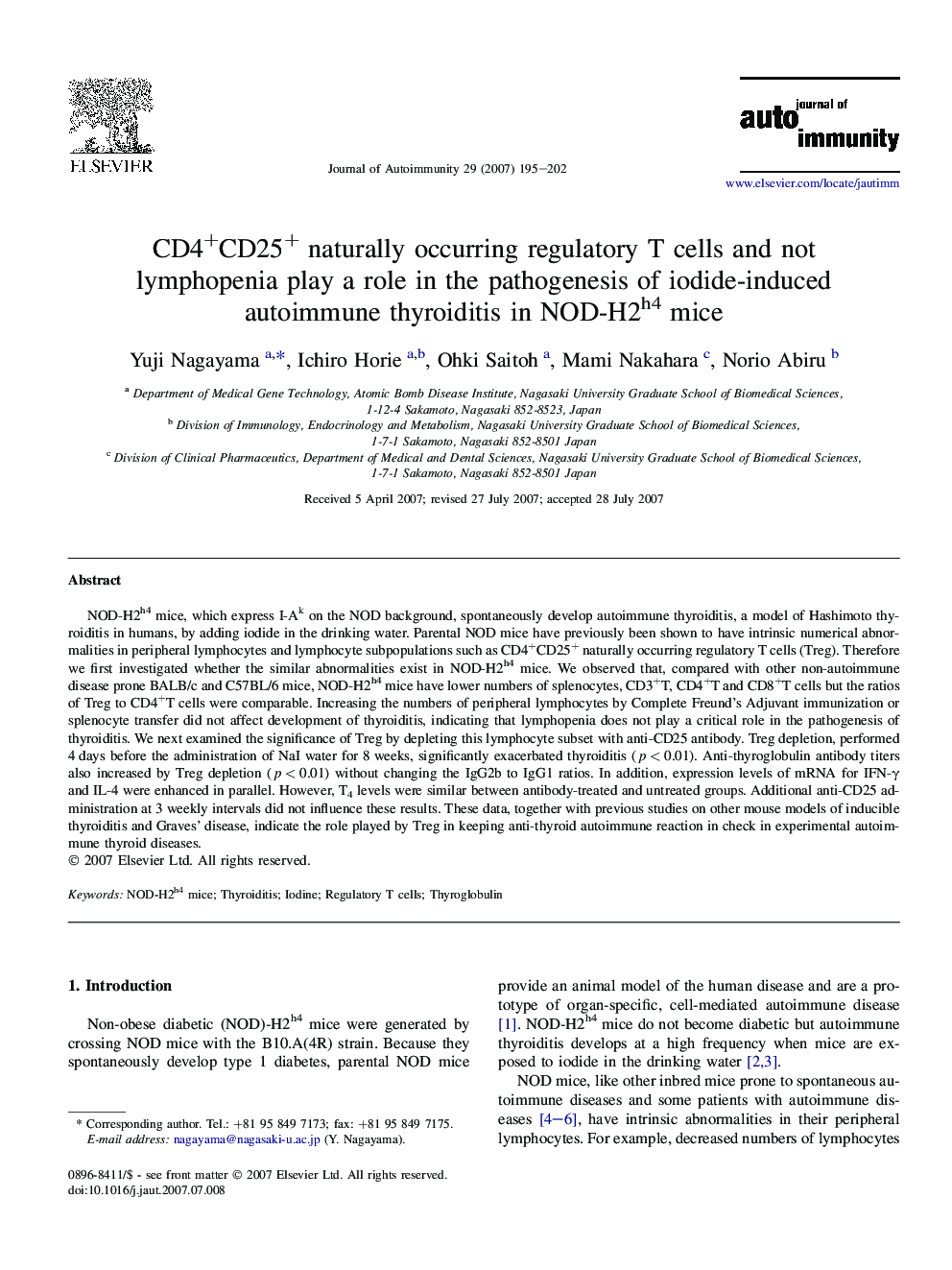| Article ID | Journal | Published Year | Pages | File Type |
|---|---|---|---|---|
| 3368512 | Journal of Autoimmunity | 2007 | 8 Pages |
NOD-H2h4 mice, which express I-Ak on the NOD background, spontaneously develop autoimmune thyroiditis, a model of Hashimoto thyroiditis in humans, by adding iodide in the drinking water. Parental NOD mice have previously been shown to have intrinsic numerical abnormalities in peripheral lymphocytes and lymphocyte subpopulations such as CD4+CD25+ naturally occurring regulatory T cells (Treg). Therefore we first investigated whether the similar abnormalities exist in NOD-H2h4 mice. We observed that, compared with other non-autoimmune disease prone BALB/c and C57BL/6 mice, NOD-H2h4 mice have lower numbers of splenocytes, CD3+T, CD4+T and CD8+T cells but the ratios of Treg to CD4+T cells were comparable. Increasing the numbers of peripheral lymphocytes by Complete Freund's Adjuvant immunization or splenocyte transfer did not affect development of thyroiditis, indicating that lymphopenia does not play a critical role in the pathogenesis of thyroiditis. We next examined the significance of Treg by depleting this lymphocyte subset with anti-CD25 antibody. Treg depletion, performed 4 days before the administration of NaI water for 8 weeks, significantly exacerbated thyroiditis (p < 0.01). Anti-thyroglobulin antibody titers also increased by Treg depletion (p < 0.01) without changing the IgG2b to IgG1 ratios. In addition, expression levels of mRNA for IFN-γ and IL-4 were enhanced in parallel. However, T4 levels were similar between antibody-treated and untreated groups. Additional anti-CD25 administration at 3 weekly intervals did not influence these results. These data, together with previous studies on other mouse models of inducible thyroiditis and Graves’ disease, indicate the role played by Treg in keeping anti-thyroid autoimmune reaction in check in experimental autoimmune thyroid diseases.
